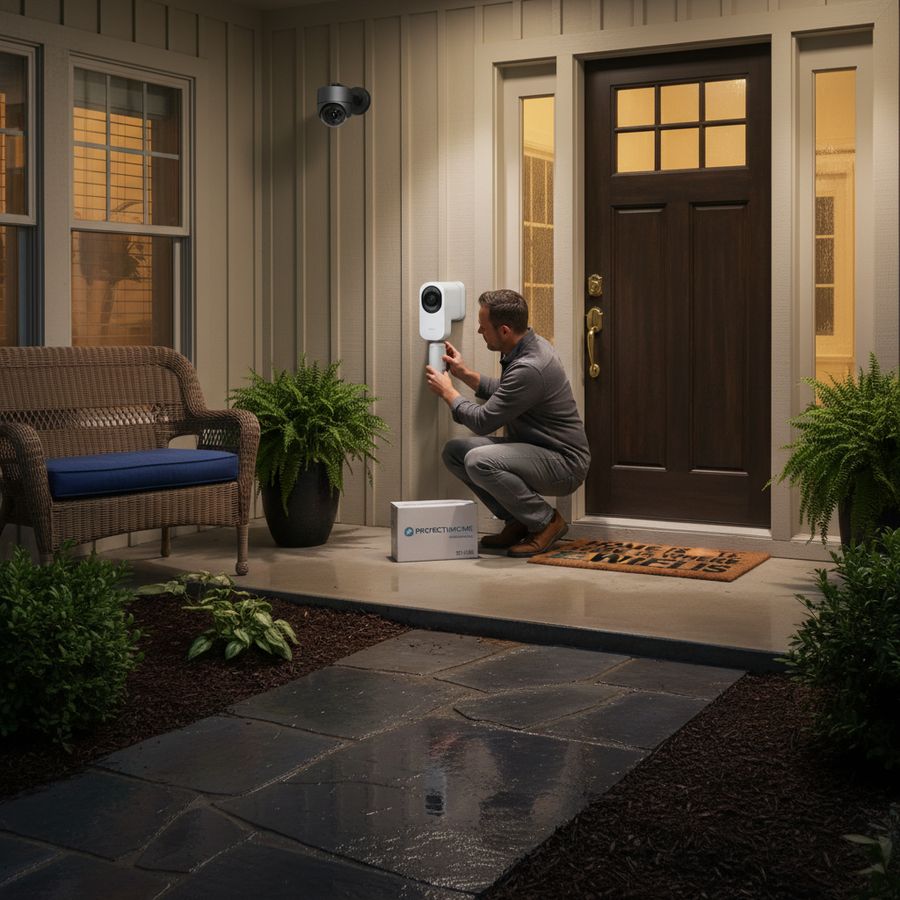Tips to Lower Your Property Insurance Premiums
Overview
Lowering your property insurance premiums is a smart financial move that can save you hundreds or even thousands of dollars annually. Property insurance protects your home and belongings from unexpected events such as fire, theft, or natural disasters. However, insurance premiums can sometimes feel burdensome, especially if you’re on a tight budget. The good news is that there are practical strategies to reduce these costs without sacrificing adequate coverage.
Understanding how insurance premiums are calculated is the first step toward lowering them. Insurers assess risk based on various factors including the location of your property, its age and condition, your claims history, and the level of coverage you choose. By managing these risk factors effectively, you can position yourself as a lower risk to insurers, which often translates to lower premiums.
Key ways to lower property insurance premiums involve improving your home’s security, adjusting your insurance deductibles, bundling multiple insurance policies, maintaining your home regularly, and shopping around for the best insurance quotes. Each of these approaches helps mitigate the risk of costly claims or administrative costs for the insurer, thereby reducing what you pay.
"Insurance premiums are ultimately a reflection of risk. The lower your risk profile, the more affordable your insurance can become."
In this article, we will explore each method in detail, providing actionable tips that homeowners can implement to enjoy lower insurance premiums while maintaining solid protection for their valuable property.

Improving Home Security
Enhancing your home security is one of the most effective ways to lower property insurance premiums. Insurance companies reward homeowners who take proactive steps to protect their property from theft, vandalism, and damage. By installing security devices, you demonstrate responsibility and reduce the likelihood of claims, which insurers factor into premium calculations.
Common security improvements that can help lower your insurance premiums include:
Installing a professionally monitored alarm system
Adding deadbolt locks and secure window locks
Using security cameras visible from the street
Adding motion-sensor exterior lighting around the property
Securing garage doors and outbuildings
Insurance companies often offer discounts if your home has these security features. For example, a monitored alarm system can reduce your premium by 5% to 20%, depending on your insurer and location. Additionally, neighborhood watch participation or gated community residence may also contribute to premium reductions.
Beyond physical security devices, maintaining a clear property perimeter and trimming overgrown bushes can reduce hiding spots for potential intruders. This not only enhances safety but also lowers your risk profile in the eyes of insurers.
"Investing in home security is a win-win: it protects your family and property while lowering your insurance costs."
Before installing new security systems, check with your insurance provider to understand which features qualify for discounts. This approach ensures that your investment yields maximum savings on your property insurance premiums.

Increasing Deductibles
Adjusting your insurance deductibles is a straightforward way to lower your property insurance premiums. The deductible is the amount you agree to pay out of pocket before your insurer covers the remaining cost of a claim. By choosing a higher deductible, you reduce the insurer’s risk and administrative expenses, which often results in lower premiums.
For example, increasing your deductible from $500 to $1,000 can reduce your annual premium by a significant percentage, sometimes up to 20% or more. However, it’s essential to ensure that the deductible you select is an amount you can comfortably afford in the event of a claim.
Consider these points when increasing deductibles:
Evaluate your emergency savings to cover the higher deductible
Understand the trade-off between monthly premium savings and potential out-of-pocket costs
Check if your insurer offers different deductible amounts for specific risks (e.g., hurricane or earthquake)
Review your deductible annually as your financial situation changes
It's important to find the right balance. While a higher deductible reduces your premiums, it also means paying more upfront if you file a claim. This strategy is best suited for homeowners who have a low risk of frequent claims and can afford the deductible amount without financial strain.
"Choosing the right deductible is a personal decision that balances immediate savings with future financial readiness."
Consult with your insurance agent to customize your deductible options and understand how changes will affect both your premiums and coverage. This tailored approach ensures you optimize savings while maintaining sufficient protection.
Bundling Insurance Policies
Bundling insurance policies refers to purchasing multiple types of insurance—such as property, auto, and liability—from the same insurance company. This strategy is a proven way to lower property insurance premiums because insurers often offer discounts to customers who consolidate their policies.
When you bundle your insurance, the insurer benefits from increased business and simplified administration, which translates into cost savings passed on to you. Typical bundling discounts can range from 5% to 25% depending on the insurer and the number of policies combined.
Common insurance bundles include:
Homeowners and auto insurance
Homeowners and renters insurance (for multiple properties)
Property insurance combined with umbrella liability policies
Besides discounts, bundling policies offers the convenience of a single bill and a unified point of contact for claims and customer service. This can simplify managing your insurance and improve your overall experience.
Before bundling, compare the bundled premium against separate policies to verify the savings. Some insurers may charge more for bundled policies depending on your risk profile or coverage levels, so it’s important to perform a thorough cost-benefit analysis.
"Bundling insurance policies not only saves money but also streamlines your insurance management."
Speak with your insurance provider about bundling options and available discounts. This simple step can be a quick win toward lowering your property insurance premiums while enhancing your coverage portfolio.
Regular Home Maintenance
Conducting regular home maintenance is a proactive way to protect your property and potentially lower your insurance premiums. Insurance companies favor well-maintained homes because they present a lower risk of damage or claims related to neglect.
Homeowners who invest in upkeep reduce the likelihood of incidents such as water damage, electrical fires, or structural failures. These events tend to lead to costly claims that drive insurance premiums higher.
Key areas to focus on for maintenance include:
Inspecting and repairing the roof to prevent leaks
Cleaning gutters and downspouts to prevent water damage
Checking electrical wiring and outlets for safety
Servicing heating, ventilation, and air conditioning (HVAC) systems
Fixing plumbing leaks promptly
Sealing cracks in foundations or walls
Keeping records of regular maintenance can also be beneficial when negotiating insurance premiums. Documentation shows insurers that you are a responsible homeowner who mitigates risks, which could lead to favorable premium adjustments.
"Well-maintained homes are safer homes—and they often come with the added benefit of lower insurance premiums."
Incorporate routine inspections and repairs into your home care schedule. This ongoing effort not only preserves the value and safety of your property but also helps you maintain lower property insurance premiums over time.
Shopping for Quotes
Shopping for insurance quotes is an essential step in finding the best rates and lowering your property insurance premiums. Insurance providers differ in how they assess risk and price policies, so obtaining multiple quotes allows you to compare coverage options and costs.
When requesting insurance quotes, be sure to provide consistent information to each insurer regarding your property features, coverage needs, and deductible preferences. This ensures you receive accurate and comparable proposals.
Tips for effective insurance quotes comparison:
Request quotes from at least three to five reputable insurers
Compare both premiums and coverage limits to ensure adequate protection
Ask about available discounts related to home security, bundling, or maintenance
Review customer service ratings and claims handling reputation
Consider working with an independent insurance broker who can access multiple carriers
Remember that the lowest premium isn’t always the best choice if the coverage is insufficient. Look for a balance between cost and comprehensive protection that matches your risk tolerance and needs.
"Regularly shopping for insurance quotes ensures you stay informed and never overpay for your property insurance."
Make it a habit to revisit your insurance quotes annually or after major life or property changes. This practice helps you continuously lower property insurance costs while keeping your policy up to date.
Conclusion
Lowering your property insurance premiums is achievable through a combination of smart strategies that reduce risk and enhance your standing with insurers. By improving home security, increasing deductibles wisely, bundling insurance policies, maintaining your home regularly, and actively shopping for insurance quotes, you can secure better rates without compromising coverage. To explore more tips and strategies, check out Property Insurance.
Each of these tips not only helps reduce your annual expenses but also contributes to the safety and value of your property. Remember, insurance premiums reflect the insurer’s assessment of risk, so taking steps to minimize that risk benefits both you and your insurance provider.
"By being proactive and informed, homeowners can enjoy meaningful savings on their insurance premiums while safeguarding their most valuable asset."
Implement these strategies thoughtfully, consult with your insurance agent regularly, and stay engaged with your property’s protection needs. This approach ensures you maintain affordable insurance premiums alongside comprehensive coverage tailored to your unique situation.
Reacties
Een reactie posten